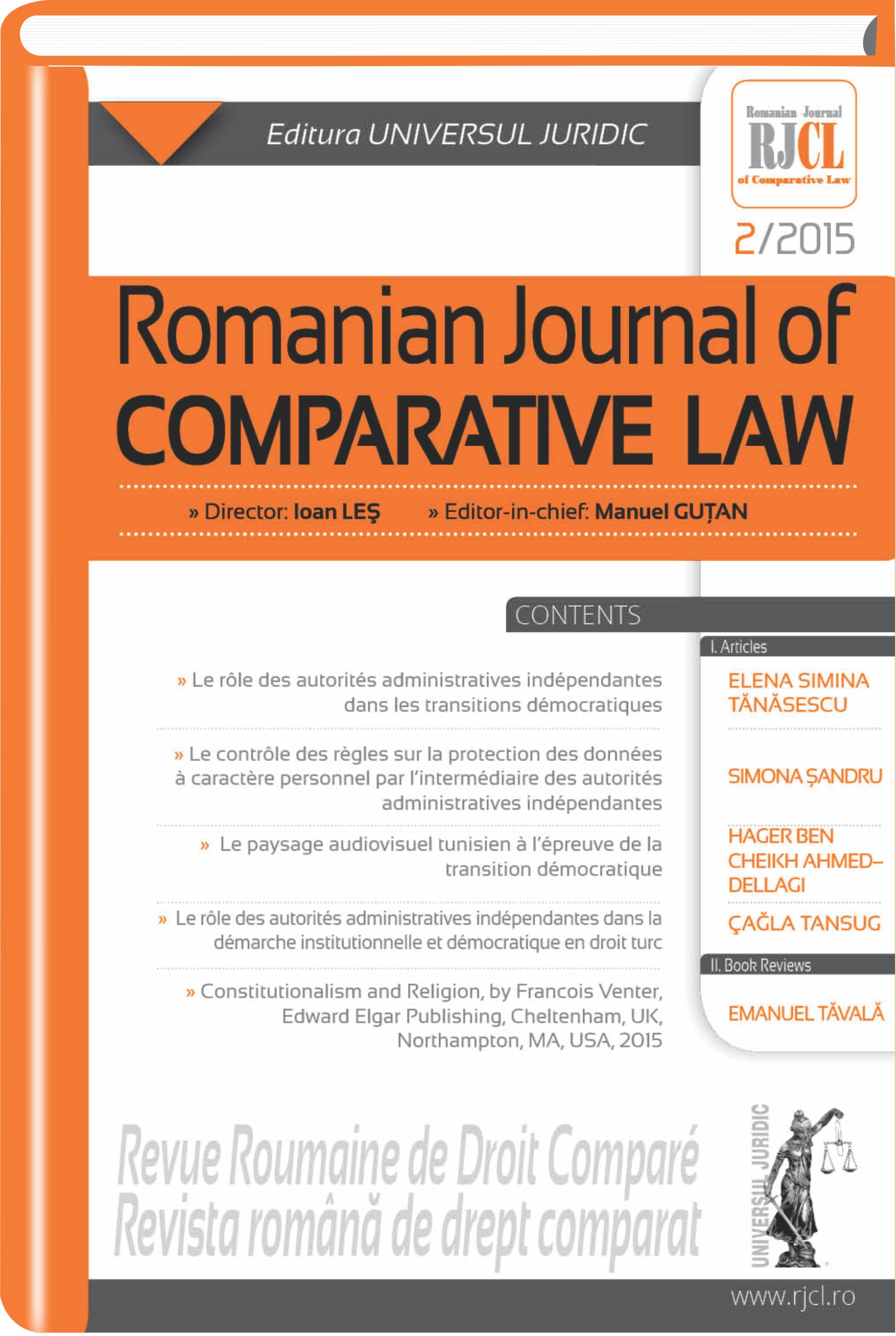Le paysage audiovisuel tunisien à l’épreuve de la transition démocratique
The Tunisian media landscape to the test of democratic transition
Author(s): Hager Ben Cheikh Ahmed–DelaggiSubject(s): Law, Constitution, Jurisprudence, Law and Transitional Justice
Published by: Universul Juridic
Keywords: democratic transition; independent agency; audio-visual; regulation; constitutional court;
Summary/Abstract: The democratic transition theory is rapidly expanding. Fed and inspired by the experiences of countries that emerged either from a conflict, or from a reign of dictatorship, this transition theory led to a real juridical process, strengthened by special mechanisms and independent institutions. When revolution happened, Tunisia begun a new phase on transitional process, and confided the key-stages of the democratic process construction, to independent authorities asked to organize and/or to regulate a sector. The audio-visual sector in Tunisia is a strategic one, that’s why it had been a state monopoly. The abolition of the main tools of repression in media sector, created a chaotic situation. The absence of a legal framework favoured the proliferation of private radios and television channels, emitting in total denial of law and regulations. In this fragile context marked by political and security instability, the necessity of setting up a new regulation authority of the audio-visual sector became a necessity, even an emergency. The present situation is feeding a hope of a new constitutional authority strengthened by mechanisms and texts in a progressive elaboration.
Journal: Revista Română de Drept Comparat
- Issue Year: 2015
- Issue No: 02
- Page Range: 194-223
- Page Count: 30
- Language: French

